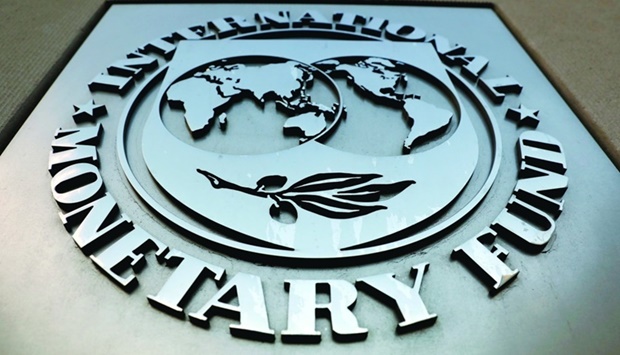The International Monetary Fund (IMF) has suggested a slew of measures such as deepening financial markets and containing balance sheet vulnerabilities, to enable Qatar follow a more independent monetary policy in the long run, even as the current exchange rate policy remains a "credible monetary anchor".
In its Article IV consultation with Qatar, the IMF found that the country's exchange rate peg continues to serve Qatar well.
The Bretton Woods institution's assessment found the peg to be a "credible monetary anchor", which will be further supported by fiscal consolidation and competitiveness-enhancing reforms.
A more flexible exchange rate regime would have limited effect on external competitiveness since 87% of Qatar’s exports are hydrocarbon and could generate significant uncertainty and negative balance-sheet effects (as forex accounts for 17% and 32% of banks assets and liabilities, respectively), it said.
Given the robust recovery and abundant liquidity, the IMF supported increases in the Qatar Central Bank’s policy rates, following the US Federal Reserve’s moves, which, together with the gradual reduction in the zero-interest repo facility, should help to reduce excess liquidity and strengthen monetary policy transmission, it said, observing that since March 2022, the QCB increased the deposit rate by 50 bps (basis points), lending rate by 25 bps, and the repo rate by 75 bps.
QCB Governor HE Sheikh Bandar bin Mohamed bin Saoud al-Thani recently told the Qatar Economic Forum, powered by Bloomberg, that the exchange rate policy served the economy "very effectively," adding that he doesn't expect any changes in the exchange rate policy.
The country’s monetary policy has been linked to the US Federal Reserve’s policy because of riyal’s fixed exchange parity with the dollar.
"To pave the way for a more independent monetary policy when it becomes appropriate in the long run", the IMF recommended strengthening the liquidity management via improved liquidity forecasting and co-ordination among the fiscal authorities, the Qatar Investment Authority (QIA) and the QCB.
The measures also included steps to deepen financial markets to enhance monetary transmission; and contain balance sheet "vulnerabilities" from foreign exchange exposure.
"Containing banks’ exposure to foreign liabilities and financial market deepening would help reduce vulnerabilities and enhance monetary transmission," the IMF report said.
The QCB noted its work to establish liquidity forecasting in co-ordination with related government agencies to promote a proactive liquidity management framework and strengthen monetary policy.
In its Article IV consultation with Qatar, the IMF found that the country's exchange rate peg continues to serve Qatar well.
The Bretton Woods institution's assessment found the peg to be a "credible monetary anchor", which will be further supported by fiscal consolidation and competitiveness-enhancing reforms.
A more flexible exchange rate regime would have limited effect on external competitiveness since 87% of Qatar’s exports are hydrocarbon and could generate significant uncertainty and negative balance-sheet effects (as forex accounts for 17% and 32% of banks assets and liabilities, respectively), it said.
Given the robust recovery and abundant liquidity, the IMF supported increases in the Qatar Central Bank’s policy rates, following the US Federal Reserve’s moves, which, together with the gradual reduction in the zero-interest repo facility, should help to reduce excess liquidity and strengthen monetary policy transmission, it said, observing that since March 2022, the QCB increased the deposit rate by 50 bps (basis points), lending rate by 25 bps, and the repo rate by 75 bps.
QCB Governor HE Sheikh Bandar bin Mohamed bin Saoud al-Thani recently told the Qatar Economic Forum, powered by Bloomberg, that the exchange rate policy served the economy "very effectively," adding that he doesn't expect any changes in the exchange rate policy.
The country’s monetary policy has been linked to the US Federal Reserve’s policy because of riyal’s fixed exchange parity with the dollar.
"To pave the way for a more independent monetary policy when it becomes appropriate in the long run", the IMF recommended strengthening the liquidity management via improved liquidity forecasting and co-ordination among the fiscal authorities, the Qatar Investment Authority (QIA) and the QCB.
The measures also included steps to deepen financial markets to enhance monetary transmission; and contain balance sheet "vulnerabilities" from foreign exchange exposure.
"Containing banks’ exposure to foreign liabilities and financial market deepening would help reduce vulnerabilities and enhance monetary transmission," the IMF report said.
The QCB noted its work to establish liquidity forecasting in co-ordination with related government agencies to promote a proactive liquidity management framework and strengthen monetary policy.


